- | Suite 3, 351 London Road, Hadleigh SS7 2BT
- | 01268 206408
- | BOOKING@GPHEALTHCAREALLIANCE.CO.UK
- | Mon - Fri 9:00 - 17:00 | Sat 9:00 - 17:00 | Sun - Closed
Introduction on Vaccines
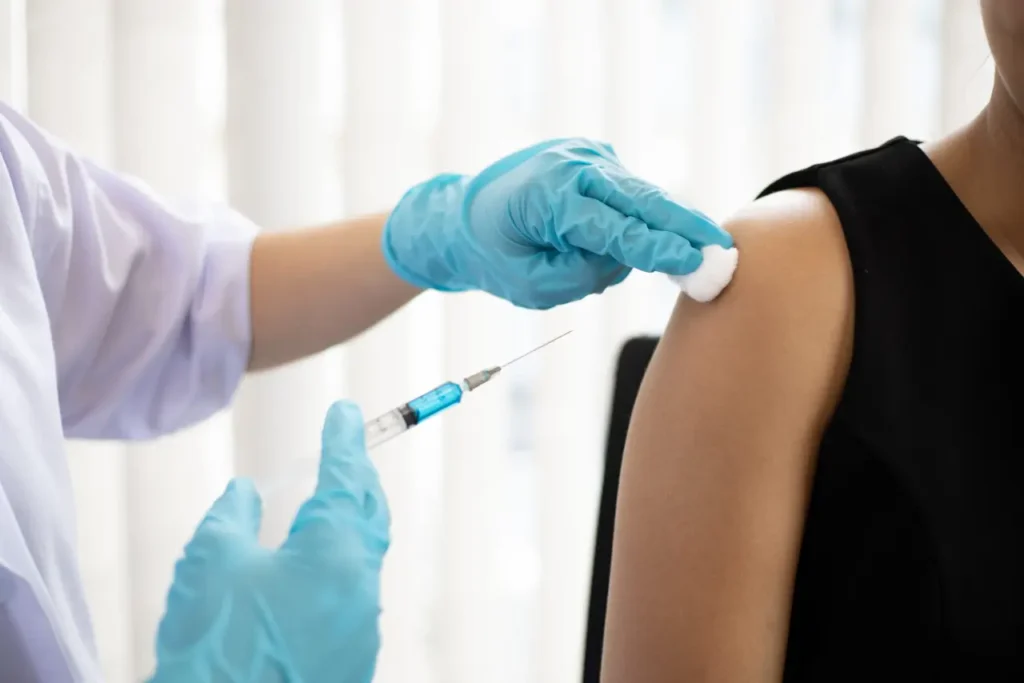
The HPV Vaccine is available for both Men and Women between the ages of 16-45, and provides protection against some cancers and genital warts.
Our private vaccine service provides peace of mind at a cost of £165.00 for a single dose of vaccine.
In most cases you will require a course of two vaccines following the schedule below:
First dose at day 0
Second dose between 6 and 24 months
HPV is the name given to a very common group of viruses.
There are many types of HPV, some of which are called ‘high risk’ because they are linked to the development of cancers, such as cervical cancer, anal cancer, genital cancers, and cancers of the head and neck.
Other types can cause conditions like warts or verucas.
High risk types of HPV can be found in more than 99% of cervical cancers.
There is also a significant association between HPV and some of the anal and genital cancers, and cancers of the head and neck.
HPV infections do not usually cause any symptoms, and more people will not know they are infected.
The 1st dose of the HPV vaccine is routinely offered to girls and boys aged 12 and 13 in school Year 8. The 2nd dose is offered 6 to 24 months after the 1st dose.
If you miss either of your HPV vaccine doses, speak to your school immunisation team or GP surgery and make an appointment to have the missed dose as soon as possible.
It is important to have both doses of the vaccine to be fully protected.
If you’re eligible and miss the HPV vaccine offered in Year 8 at School, it’s available for free on the NHS up until your 25th birthday for:
– Girls born after 1st September 1991
– Boys born after 1st September 2006
People who have the 1st dose of the HPV vaccine at 15 years of age or above will need to have 3 doses of the vaccine. This is because they do not respond as well to 2 doses as younger people do.
The Pneumococcal Vaccine is available for both men and women aged between 18-65, and provides protection against the 23 most common strains of pneumonia.
Our private vaccine service provides peace of mind at a cost of £50.00 for a single dose of vaccine.
In most cases you only require a single dose to provide a lifelong protection.
There are 4 groups of people who are advised to get vaccinated against pneumococcal infections:
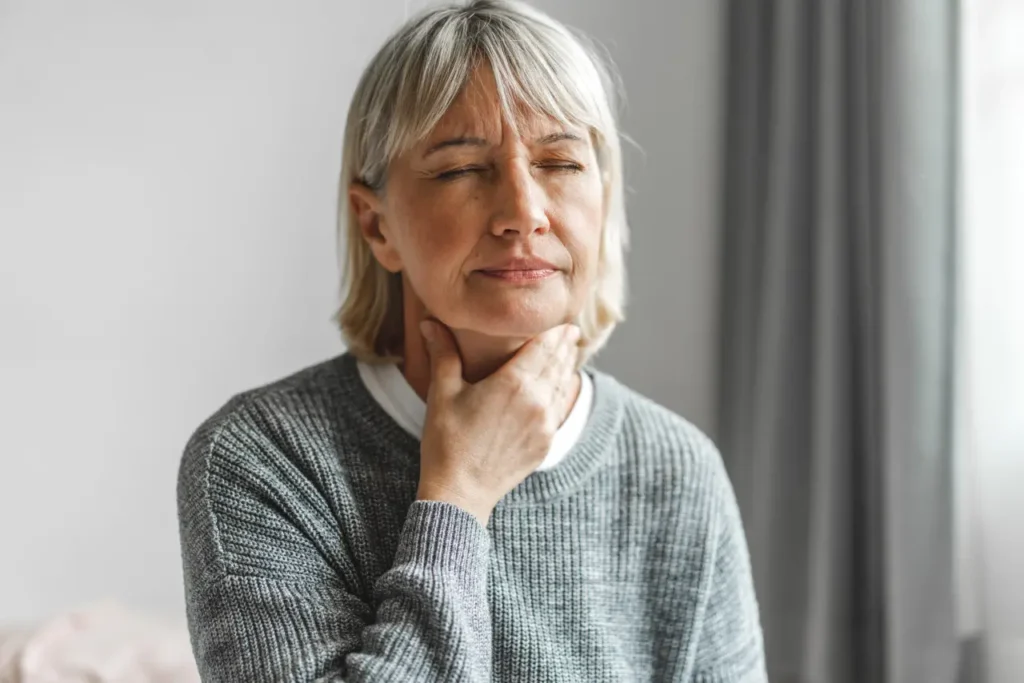
The Pneumococcal Vaccine protects against serious and potentially fatal pneumococcal infections. It’s also known as the pneumonia vaccine.
Pneumococcal infections are caused by the bacterium Streptococcus Pneumoniae and can lead to pneumonia, blood poisoning (sepsis) and meningitis.
At their worst, they can lead to permanent brain damage, or even kill.
Both types of pneumococcal vaccine encourage your body to produce antibodies against pneumococcal bacteria.
Antibodies are proteins produced by the body to neutralise or destroy disease carrying organisms and toxins. They protect you from becoming ill if you’re infected with the bacteria.
More than 90 different strains of the pneumococcal bacterium have been identified, although most of these strains do no cause serious infection.
The childhood vaccine (PCV) protects against 13 strains of the pneumococcal bacterium, while the adult vaccine (PPV) protects against 23 strains.
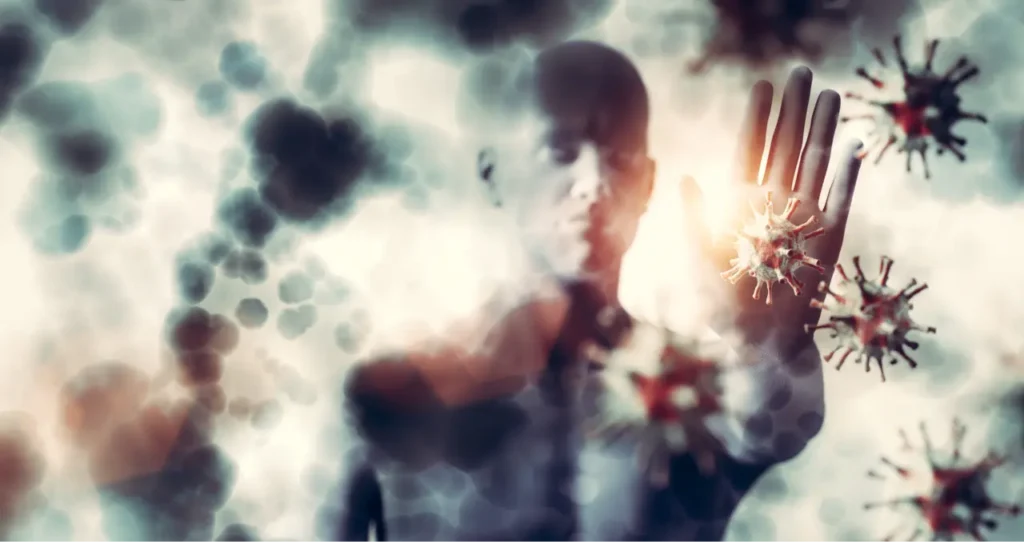
Children respond very well to the Pneumococcal vaccine.
The introduction of this vaccine into the NHS childhood vaccination schedule has resulted in a large reduction in Pneumococcal disease.
The Pneumococcal vaccine given to older children and adults is thought to be around 50% to 70% effective at preventing Pneumococcal disease.
Both types of Pneumococcal vaccine are inactivated or ‘killed’ vaccines and do not contain any live organisms. They cannot cause the infections they protect against.
Occasionally, you or your child may need to delay having the Pneumococcal vaccine or completely avoid it.
Tell your GP if you or your child has had a bad reaction to any vaccination in the past.
If there’s been a confirmed severe allergic reaction (anaphylaxis) to the Pneumococcal Vaccine or any ingredient in the vaccine, it may not be possible for you to have it.
But if it was only a mild reaction, such as a rash, it’s generally safe to have the vaccine.

The Shingles Vaccine is available for both men and women aged between 50-70, and provides protection against Shingles, a virus that causes a painful rash.
Our private vaccine service provides peace of mind at a cost of £170 for a single dose of vaccine. You will require a single vaccine to provide long-term protection.
The vaccine is an injection into the upper arm.
Shingles, also called Herpes Zoster, is a painful skin rash caused by the chickenpox virus (varicella-zoster virus).
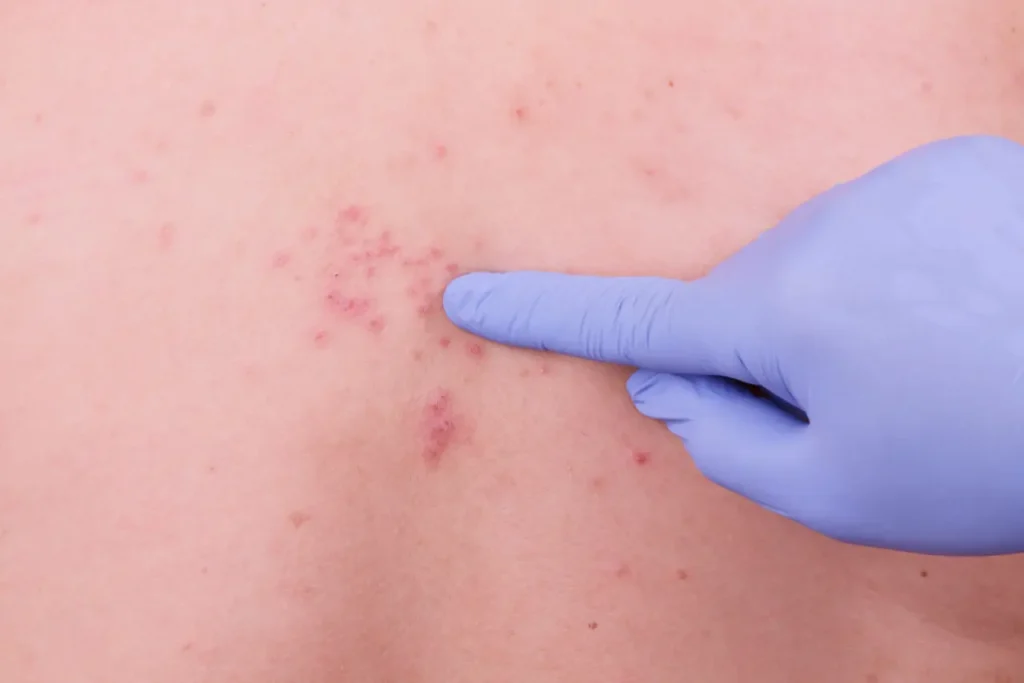
You do not ‘catch’ Shingles – it comes on when there’s a reactivation of Chickenpox virus that’s already in your body.
After you’ve recovered from Chickenpox, the Varicella-Zoster virus lies dormant in your nerve cells and can reactivate at a later stage when your immune system is weakened.
Anyone who has had Chickenpox can get Shingles.
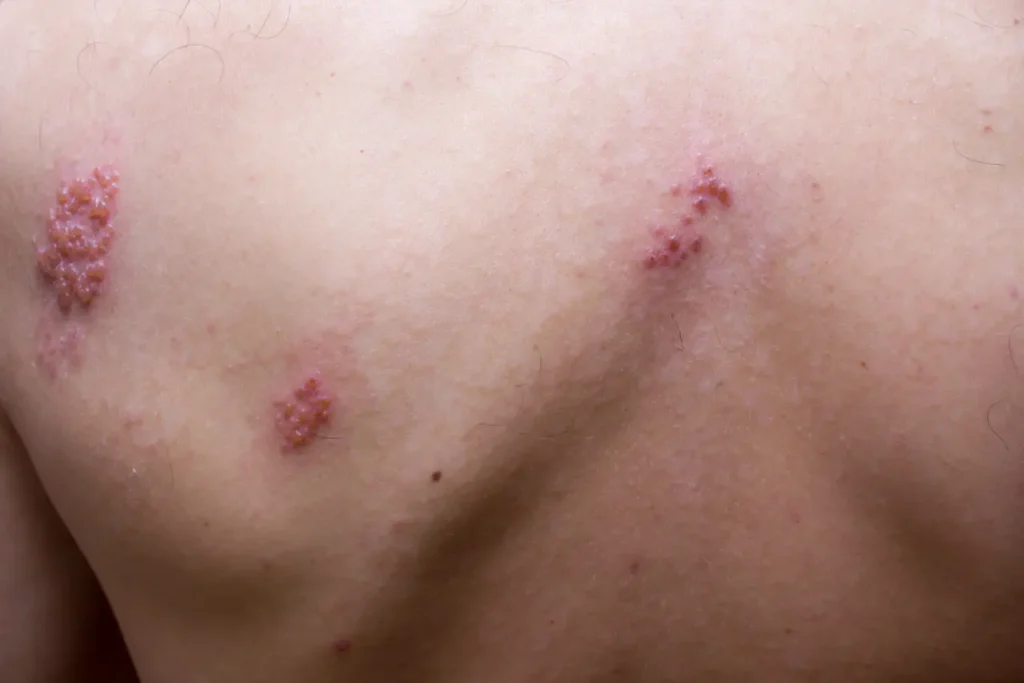
Yes, it can be. Not only can Shingles be very painful and uncomfortable, some people are left with long-lasting pain call Post-Herpetic Neuralgia (PHN) for years after the initial rash has healed.
Very rarely, Shingles or complications can be fatal.
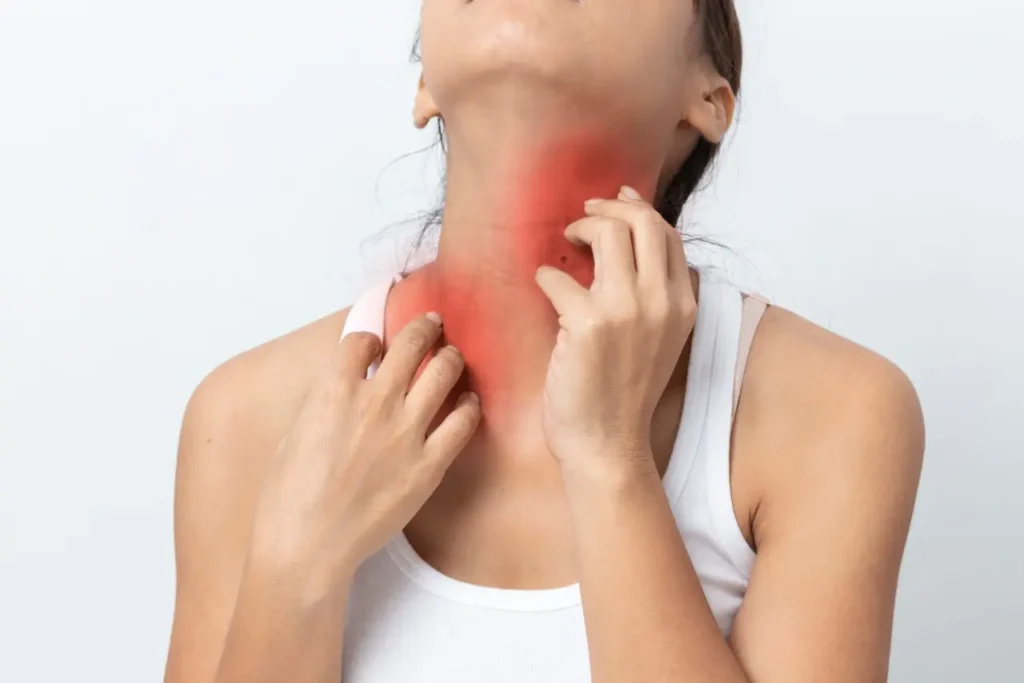
Around 1 in 5 people who have had Chickenpox (usually in childhood) go on to develop Shingles.
That means that 10’s of thousands of people in England and Wales will get Shingles each year.

Shingles Vaccination is available to everyone aged 70-79.
When you’re eligible, you can have the Shingles vaccination at any times of the year.
The Shingles vaccine is not available on the NHS to anyone aged 80 or over because is seems to be less effective in this age group.
Read more about who can have the Shingles vaccine.

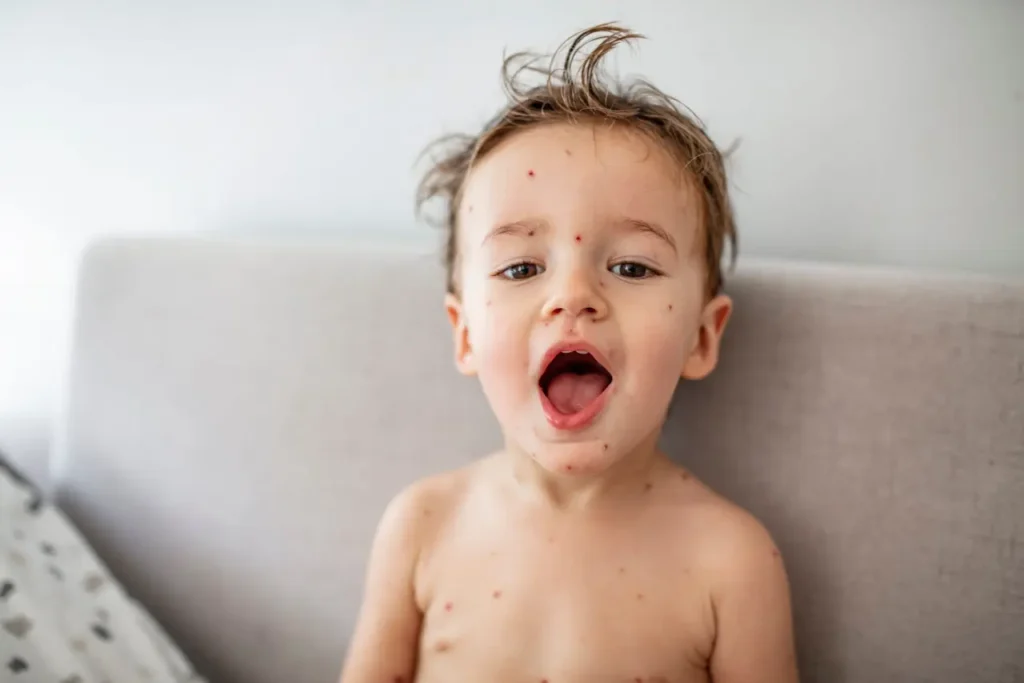
The Chickenpox Vaccine is available for those aged between 1 and 65, and provides protection against Chickenpox (Varicella), a highly infectious illness causing a rash and fever.
Our private vaccine service provides peace of mind at a cost of £70.00 for a single dose of vaccine.
In most cases you will require a course of two vaccines separated by an interval of 4 to 8 weeks to provide long-term protection.
The vaccine is given as 2 separate injections, usually into the upper arm, 4 to 8 weeks apart.
The total cost for the course of vaccines would be £140.00
The Chickenpox vaccine protects against the Varicella Zoster virus that causes Chickenpox.
The Chickenpox vaccine is not part of the routine childhood vaccination schedule.
It is currently only offered on the NHS to people who are in close contact with someone who is particularly vulnerable to Chickenpox or its complications.
There are 2 Chickenpox vaccines currently available. The brand names of the Chickenpox vaccine are VARIVAX and VARILRIX.
Chickenpox is a common childhood infection. Usually, it’s mild and complications are rare.
Almost all children develop immunity to chickenpox after infection, so most only catch it once. The disease can be more severe in adults.
Certain groups of people, however, are at greater risk of serious complications from chickenpox. These include:
pregnant women – chickenpox can be very serious for an unborn baby when a pregnant woman catches the infection.
It can cause a range of serious birth defects, as well as severe disease in the baby when it is born.
Read more about what to do if you catch or are exposed to chickenpox in pregnancy.
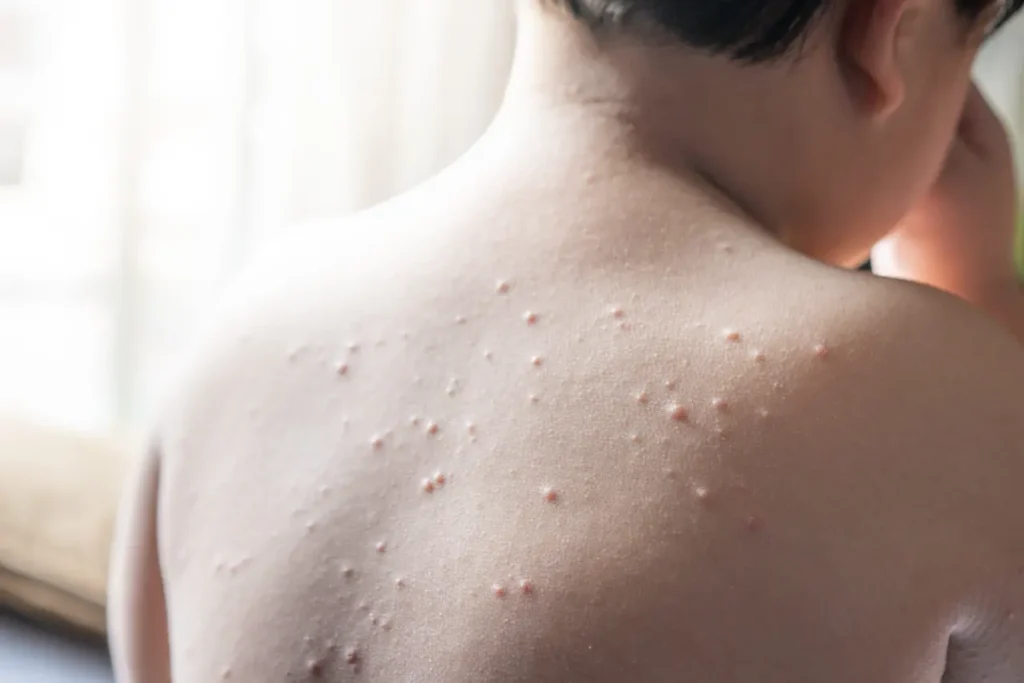
It is recommended for certain individuals, such as:
This is to lower the chances of infecting people at risk. For example, if you’re having chemotherapy treatment, it’s advisable that non-immune children close to you are given the chickenpox vaccine.
The vaccine would also be recommended if you were about to start work in a radiotherapy department and had not had chickenpox before.
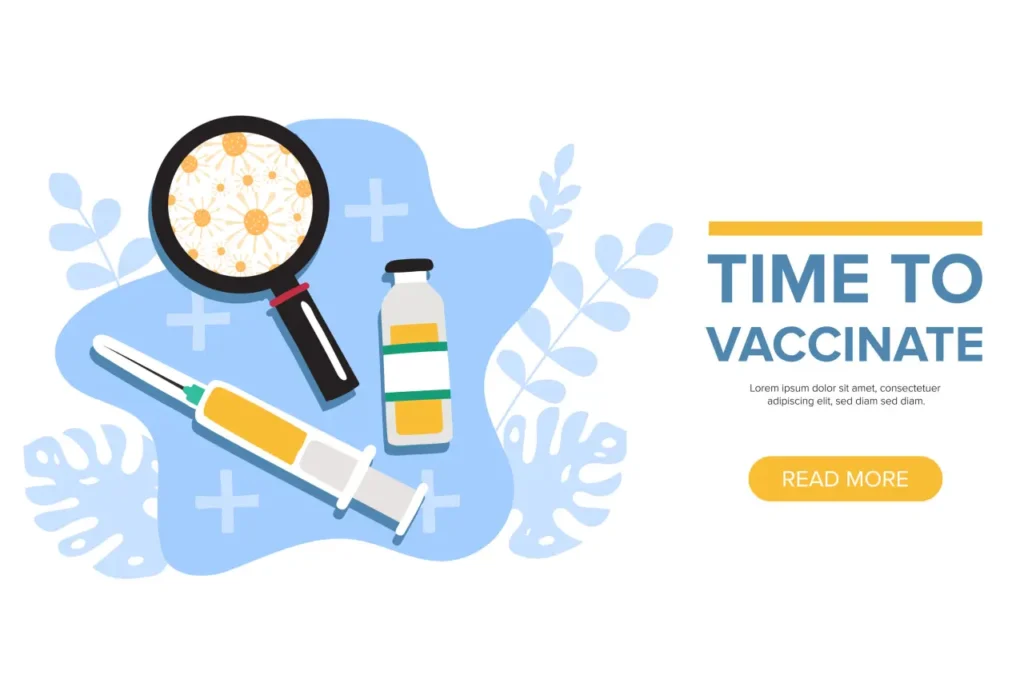
The chickenpox vaccine is a live vaccine and contains a small amount of weakened chickenpox-causing virus.
The vaccine stimulates your immune system to produce antibodies that will help protect against chickenpox.
Read more about live vaccines.
Read more about Chickenpox Vaccine side effects.
Read more about who should have the Chickenpox Vaccine.
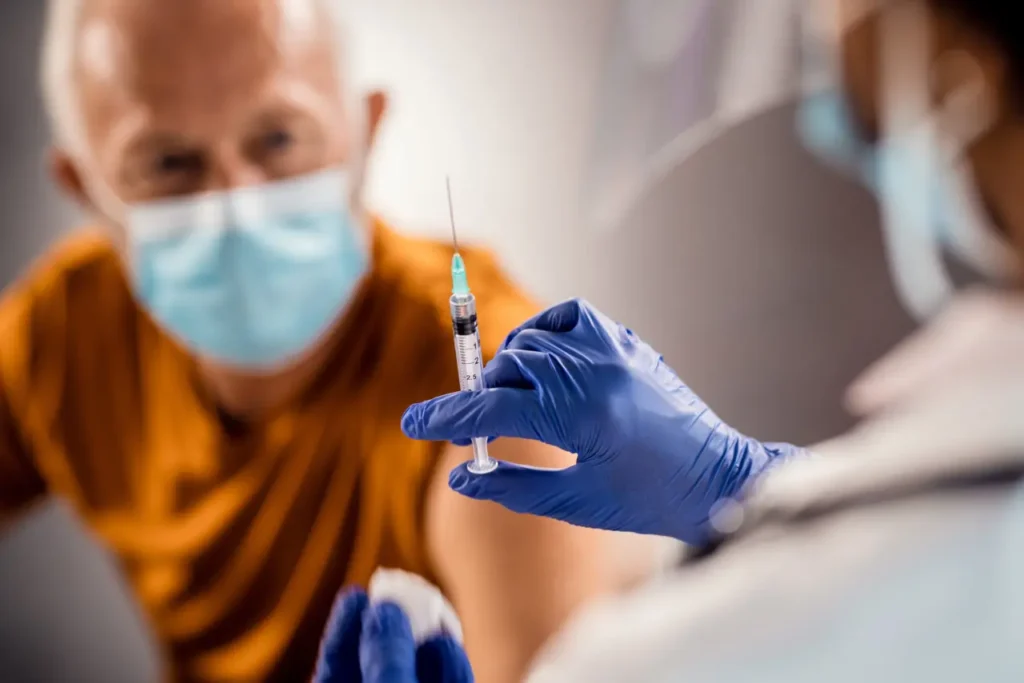
It’s been shown that 9 out of 10 children vaccinated with a single dose will develop immunity against chickenpox. Having 2 doses is recommended, as this gives an even better immune response.
The vaccination is not quite as effective after childhood. It’s estimated that three-quarters of teenagers and adults who are vaccinated will become immune to chickenpox.
Read answers to common questions about the Chickenpox Vaccine.
Doses: 1
Doses: 1
Doses: 2
Doses: 1
Doses: 1
Doses: 1
Doses: 2
Information from the NHS Website as at 14/04/2022.
Information from the NHS website is licensed under the Open Government Licence v3.0.
Are you looking to get you or your loved one vaccinated? Don’t delay, contact us today.